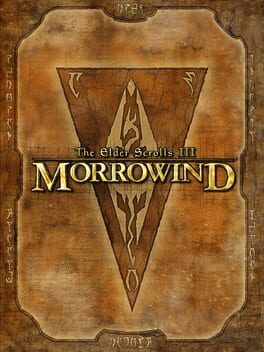

The Elder Scrolls III: Morrowind
released on May 01, 2002
First-person WRPG and third mainline entry in the Elder Scrolls franchise in which the player arrives in the island of Vvardenfell, an exotic land plagued by disease-carrying storms and ruled by a godly Tribunal, in the Morrowind province of Tamriel, and takes part in the prophecy foretelling the second coming of Nerevar, who will supposedly save Morrowind from malicious clans both within and outside Vvardenfell.
Reviews View More
Bethesda at its state of the art.
I think that everything in Morrowind is nearly perfect. Its interface is the best I have ever seen in a computer role playing game, and the exploration is the best I have experienced together with Gothic 2.
These two games are still better than a lot of AAA role playing games that come out today.
What I like the most about Morrowind is its weird and strange setting. Everything seems so alien, bizarre, it looks like another planet. I think that Bethesda used a lot of ideas from Morrowind in order to build Starfield. But Morrowind is on another level. While the following games relies too much on plot and characters, Morrowind is still totally a world driven game. There is no suspension of disbilief. Perfect game. I would never stop playing it.
I think that everything in Morrowind is nearly perfect. Its interface is the best I have ever seen in a computer role playing game, and the exploration is the best I have experienced together with Gothic 2.
These two games are still better than a lot of AAA role playing games that come out today.
What I like the most about Morrowind is its weird and strange setting. Everything seems so alien, bizarre, it looks like another planet. I think that Bethesda used a lot of ideas from Morrowind in order to build Starfield. But Morrowind is on another level. While the following games relies too much on plot and characters, Morrowind is still totally a world driven game. There is no suspension of disbilief. Perfect game. I would never stop playing it.
i found a secret 38th sermon where vivec confesses that he didnt achieve chim by reaching heaven through violence but instead through nofap, positive vibes and consistent hydration
My god Bethesda has fallen off a cliff. Todd Howard can make this and Starfield?
The writing and characters of this title is top notch. It feels so RPG it is practically a guidebook on the genre. A zoomer brain ruined by a short attention span would hate this title based on how free and packed full it is. A remaster or remake would be amazing :0
The writing and characters of this title is top notch. It feels so RPG it is practically a guidebook on the genre. A zoomer brain ruined by a short attention span would hate this title based on how free and packed full it is. A remaster or remake would be amazing :0
my zoomer tendencies are showing but this is just a little too dense for me
meu primeiro contato com a série elder scrolls em 2009, no meu notebook Celeron de 1.6Ghz e 1Gb de RAM, muito bom, não só um mundo, mas um jogo em si, extremamente rico em tudo que você possa imaginar, possibilidades, habilidades, poderes e deveres infinitos, apesar de extremamente ultrapassado, pra quem não é apegado a isso, pode ser uma bela experiência ainda hoje em dia
i would like to congratulate myself on modding this game and still managed to break it, just like god intended
